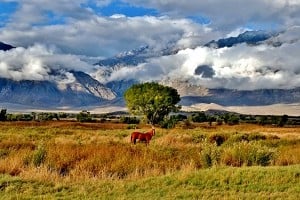
The gorgeous, green, Valles de Trubia, situated just south of the capital of Asturias, Oviedo, contain plenty of crags and over 900 routes, making this a great holiday rock destination. Situated in the north-west of Spain the temperatures here are nowhere near as brutal as the south of Spain; this makes all-year-round climbing possible and a summer Spanish cragging trip a great option!
The climbing here is almost unknown and unreported outside of Spain (this is not the Costa Blanca or Lleida) and these are regions with relatively few climbers; the bonus for visitors and locals alike being quiet crags, limestone which is still mainly unpolished and a slew of very good crags to 'discover' for yourself. Another gratifying part of the slower rate of development is that there has been a lack of the hold 'improvement' and use of 'sika' seen in some other parts of Spain - making the climbing aesthetically very good too.
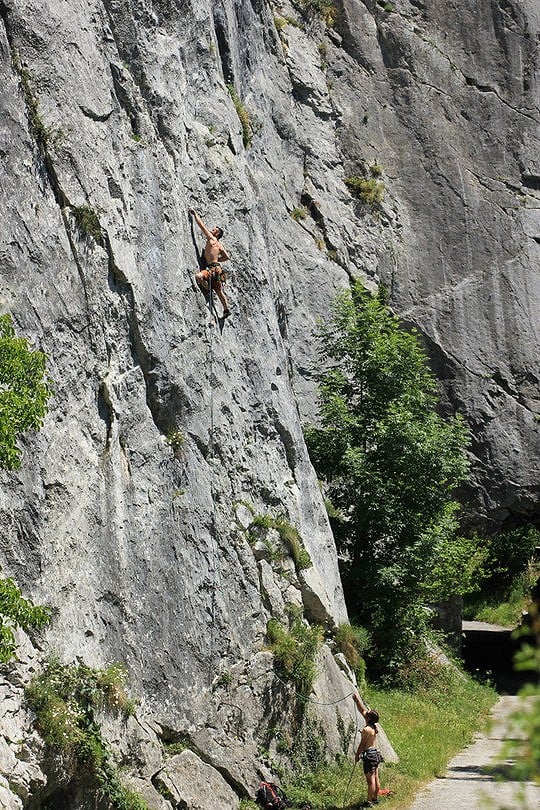
The routes are spread across a number of crags of varying scale, but importantly these crags are not a uniform style and between them there's almost every conceivable type of climbing; slabs, tufas, roofs, vertical walls overhanging walls, single pitch, multi-pitch and there should be a route to suit everyone; varying from multi-pitch 5s to 42 metre 8cs!
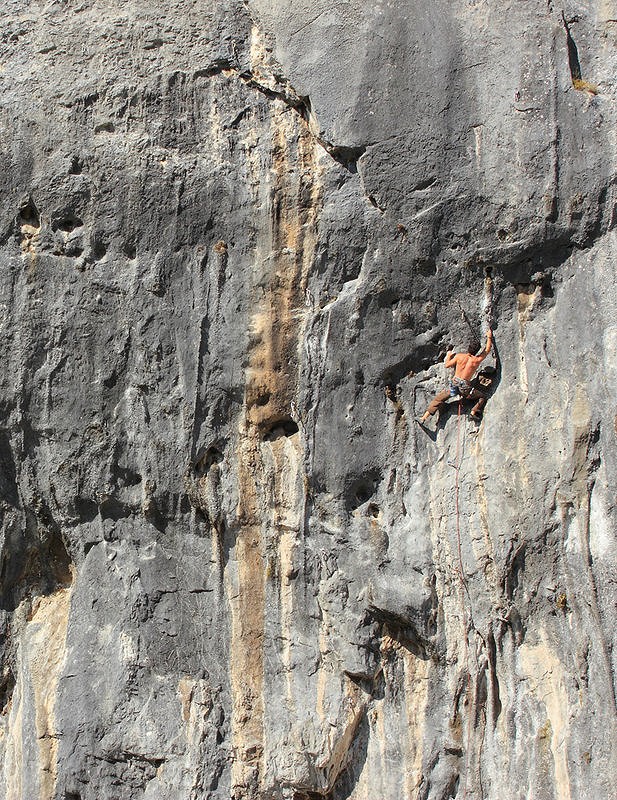
What makes this a great destination is that these valleys contain the two major crags of Asturias; Teverga and Quirós, which between them contain around 700 routes and are the heart and soul of Asturian sport climbing. So in this article I'll cover the major crags in the valley to give a flavour of the climbing…the others you can see when you get the guide!
Set in a fantastic location, Quirós is unquestionably one of the best crags in Asturias with a wealth of climbing across the grades on over twenty separate sectors. It's historically important, yet Quirós is not stuck in the past; it's a vibrant and very popular venue which is cared for by a dedicated crew of climbers including those from the refugio. Most of the sectors have been re-equipped with new bolts and chains and there has been plenty of new routing even in recent years.
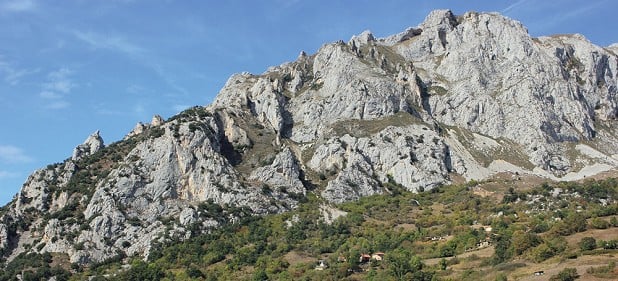
Difficult to summarise due to the amount of climbing but several things stand out: Most prominent is the superb limestone which, even after more than 40 years has hardly polished; then there's the variety, and although the climbing tends towards slabs or wall climbing, with fantastic examples of both, there are also tufas, overhangs and even the odd roof. Add in a brilliant mix of multi-pitch and single pitch routes and the fact that a lot of the single pitches are of a good length and it's easy to see why it's a great destination.
Finally, Quirós is also very much an 'everyman' crag with the majority of the routes skewed towards the mid-grade climber as well as plenty for beginners and some superb, harder testpieces too.
Key Routes: El llano 5+, La amarilla 6ª+, Exposition 3 6ª+, El Escalon 6ª, Antoxu 6c+, Corazon Salvaje 6c+, Asterix 7ª, Ya somos Europeos 7c, Historia interminable 8a
Summary – Reasonably compact, dries very quickly, shade from 4pm in summer, sun until 4 in winter, mainly slabby to vertical, some great multi-pitch routes. 22 sectors, 271 routes, 170 routes up to 6c+, 101 above.
Almost certainly the best climbing area in Asturias, and one that merits inclusion in any list of the best of Spain, Teverga is not one crag but comprises over 25 sectors with more than 450 routes. Besides the obvious advantages of scale, there are plenty of other factors which make Teverga stand out as a climbing area. Importantly there's a wide variety of climbing styles to pick from. Wall climbs at Placas del Sol, Cova Negra, Eléctrico, Canal, Muro Techo and Entecampos; short, steep testpieces at Vivac, La Cabra Muerta and Pingalagua; and stamina-fests at El Covachón, Planeta X, Bóvedas, Entecampos and Pared Negra. Unsurprisingly this means there's something for everyone and very good routes at all grades.
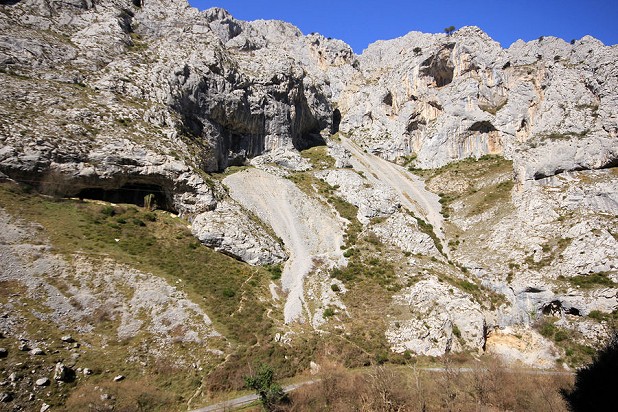
With so many sectors, the variety of orientations and angles means that at all times of the day, over the year and in nearly all conditions, there will be something to climb. Even in the height of summer it's possible to grab a morning session in the shade, take a lunch break, and then head out to seek out more shade in the afternoon. Once again almost impossible to summarise due to the sheer volume of rock it's possibly just as easy to say that I haven't met anyone who's been disappointed by the quality of the climbing and the volume of superb routes.
Finally, thanks to the hard work of the Grupo de Montaña y Escalada Aguja de Sobia, there's a great climbing scene here, with a real tolerance for climbers. Not only have they been instrumental in equipping, but over the last couple of years, in conjunction with the local council, they have developed the large parking area into a great place to stay. There's a newly-installed toilet block and showers and, please note, a collection box for upkeep. Last, but not least, the two small bars in Entrago are very friendly, and the ability to get an ice-cold beer at the end of the day in the company of your peers only adds to Teverga's appeal.
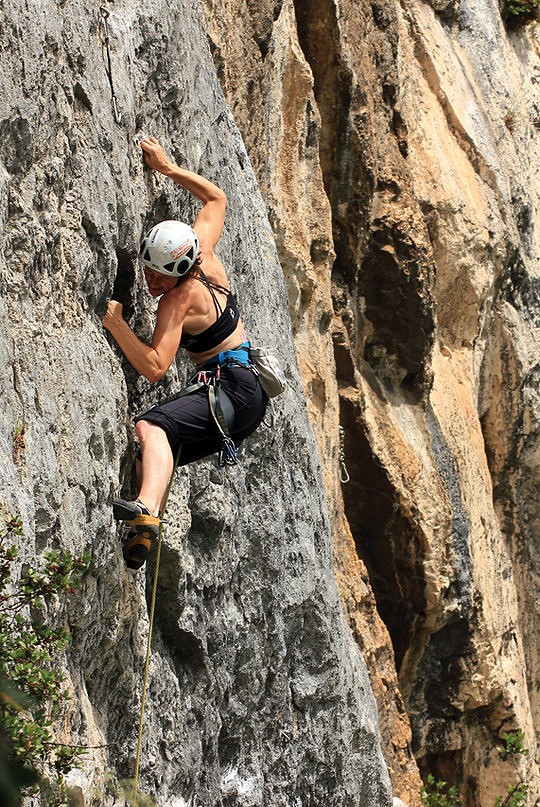
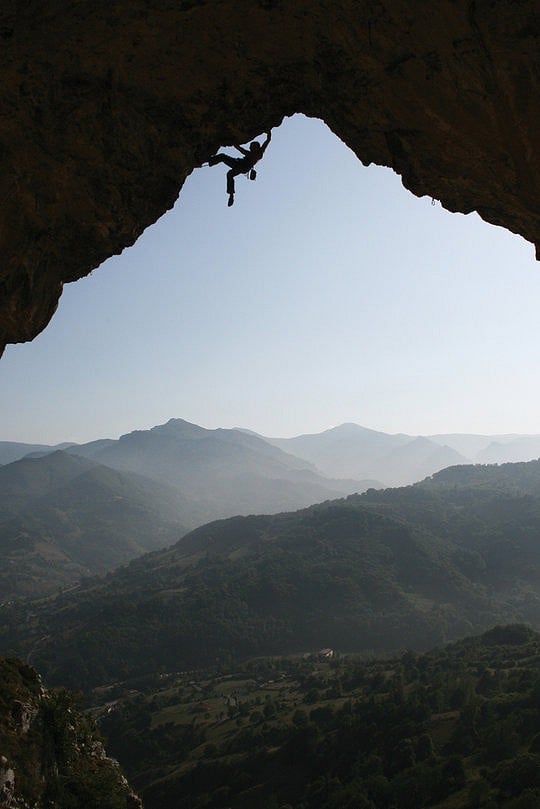
Key Routes: Too many but:, Via Classico 5+ Muro Techo, El Patan 6b Bovedas, Escuela de Calor 6c Depuradora, Tijeruca 250 7ª/+ Entecampos, Pocopan 7b/+ Placas del Sol, Chambao 7b+ Pared Negra, nirvana 7c Entecampos, Samba Pa Ti 8a El Covachon, El replicante 8b Pingalagua, Sacha 8c Planeta X
Summary – Extensive and spectacular, always something dry / shady, huge variety of styles, very well bolted.
25 sectors, 460 routes, 120 below 6c+, 340 above
Peñas Juntas
Varied, extensive and spectacular, Peñas Juntas and especially Sector Abajo, dominate the view of anyone driving to Oviedo from Quirós or Teverga. Possibly underappreciated, its three sectors are distinct and all worth a visit, with the caveat that the routes at El Planchón start at hard 7b+. The rock at all sectors is good and very similar at Abajo and El Planchón (it can feel a bit 'slippy') while at Sector Arriba there's a bit more friction. Due to the lack of climbers the base of the crag and the starts of some climbs at Abajo and the upper part of Arriba can be a little overgrown.
Key Routes: El insoportable vanidad del ego, 8c, In da house 8b+, Neandertal 7b, La +plus 6b+, Concordia 6b.
Summary – Three contrasting sectors, one super hardcore, one 'exciting' big routes and one normal!! Generally stays quite dry, morning shade. 3 sectors, 36 routes, 10 routes up to 6c+, 26 above.
Marabio
Marabio is another wonderful Asturian climbing venue with amazing views. Situated above Teverga, in a fabulous location with an enviable variety of routes and sectors, there's something for everyone. Very popular with beginners, especially at Bloques, there are quite a few routes at reasonable grades and there's also a lot for the mid-grade climber. There's plenty of variety too, with some superb slabs across the grades, fine two-pitch outings, fingery walls and on Alimoches and Rinconín some burly routes for those operating in the upper grades. Overall Marabio is well worth a visit, not just for the variety of the climbing but for the majestic situation.
Key Routes: El cantu 5, La placa 5+,Hedrada V+ 6ª, Alimoches 6b, La fisura de koki 7ª+, El rinconin 7b, Jet set 7c,
Summary – Compact, dries quickly, shade until midday summer, sun after 1pm in winter, mainly slabby to vertical, some good multi-pitch routes. 10 sectors, 90 routes, 50 routes up to 6c+, 40 above.
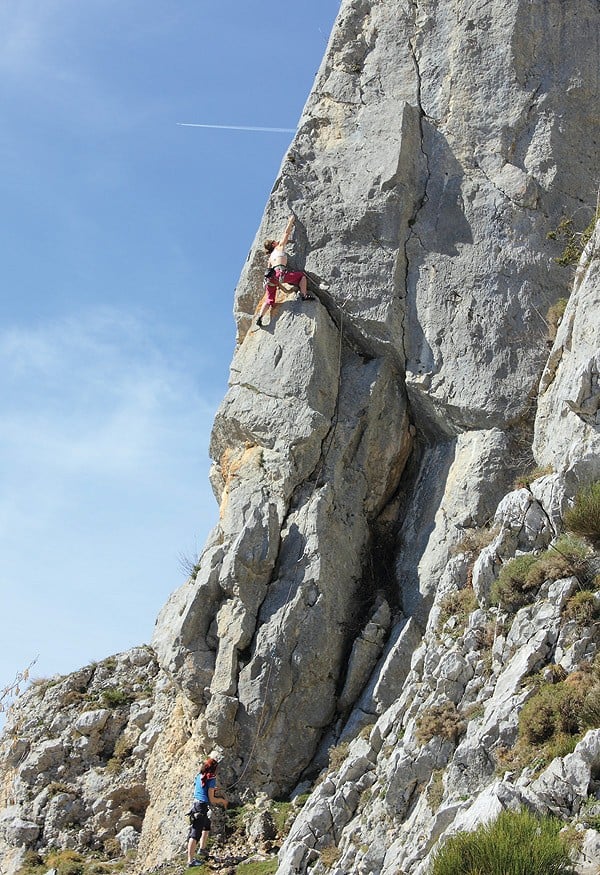
Logistics
When to Go
You can climb all year round in Asturias but probably April to January is usually the best time to visit. Both summer and autumn are very reliable and right through to January the weather is generally good. Summer is never 'silly hot' and especially in these areas there are shady crags so it is possible to climb right through the day. In winter when the sun shines it's got plenty of power and you can often climb in a t shirt. A bit like the UK the maritime climate means that spring, February and March, are probably the least reliable months, it can be great weather but it can be mixed too.
It's worth noting this is 'green Spain' and as you'll see from the photos it is surprisingly verdant and mountainous – which means that any time of the year there can be some rain. The crags do dry quickly though and from this area it's not far into Leon (the neighbouring region) which has a dry desert climate and offers an escape valve when there's a bad day.
How to Get There
Transport links to these regions are excellent with good services from the UK:
Air – Santander or Oviedo (Asturias) airports are easy to get to from major European destinations.
Easyjet fly to Asturias or Bilbao from Stansted and to Bilbao from Manchester.
Ryanair fly to Santander from Stansted too.
The crags are approx. 1h from Asturias airport and around 2.15h from Santander.
Boat – Santander and Gijón are both major ports with car ferry links. Brittany Ferries cross from Portsmouth and Plymouth in the UK to Santander all year round. They also go to Bilbao from Portsmouth. LD Lines go to Gijón from Poole in Dorset and from St Nazaire in France.
Roads - The motorway heading west from France is quiet, fast and only has a small toll section. From the south of Spain the A67 comes to Santander while the A66 crosses León to arrive in Oviedo.
Accommodation Advertise here
No Premier Listings found in this area
There are plenty of places to stay dotted around the area but my recommendations would be:
Casa Quirós www.casaquiros.co.uk Our new rental house! We have just opened this in the small village of Aciera just below the crag of Quirós. Within walking distance to the Quirós crag and 10 minutes' drive to the main parking at Teverga. It's a great sunny spot, there's wifi and even your own board for rest days!
Refugio del Llano – Under the crag at Quirós this small refugio is run by the friendly Josete and provides good value shared accommodation and hearty meals.
Bar Pena Sobia - At Teverga and run by another Jose this is a good bar and climber's hangout.
You can also check out this link and this one too for more information on accommodation.
Finally a great option if you are in a van is the large parking area at Teverga – it's perfectly acceptable to stay in your van there - this does get very busy in the height of summer though!
Food
San Martin, Proaza and Barzana between them contain a wealth of bars and restaurants and offer plenty of options to sample the hearty local cuisine and partake in the cider! And for those need a big carb boost the 'menu del dia' served in the middle of the day is stunning value and at about 9 euro for three courses and includes a bottle of wine. Don't expect to climb afterwards.
My personal recommendation would be a bottle of cider and the ribs & mixed salad at El Pantano next to the lake below Quirós – a perfect way to end the day!
Gear and Supplies
In the small towns of San Martin, Proaza and Barzana there are small local stores, banks and medical centres. For a big shop there are large shopping centres and cinemas around Oviedo. Parque Principado has a huge selection.
Outdoor Shops Advertise here
No Premier Listings found in this area
Guidebook
The guide Roca Verde covers these areas as well as the rest of the region of Asturias and also includes Leon and part of Cantabria. With nearly 3000 routes there's plenty to go at in this quiet corner of Spain.
Buy Roca Verde at www.rocaverdeclimbing.com or from all good climbing stores…
Read Grimer's review of Roca Verde on UKC.
Instructor/Guides Advertise here
No Premier Listings found in this area
Other Nearby Crags
Within about 40 minutes lie the crags of Otura (Morcin) a very popular spot with a lot of routes across the grades. And around 1 hour's drive and you are into Leon and the amazing crags there; Pedrosa, Villanueva and are all close enough for a day out giving tons more routes and great options if the weather craps out!
Other Activities
Bears, road biking, mountain biking, walking, prehistoric cave paintings, huge caves, the Romanesque churches and cathedrals of the capital Oviedo, swimming pools and a lake…This is one of the tourist hearts of Asturias and there is plenty to see and do around the Valles de Trubia. Perhaps most prominent is the Senda del Oso – a linked series of cycle tracks which covers over 50km and is a perfect way to explore the area – bikes can be hired locally at very reasonable prices. Finally it's only about an hour to a variety of beaches, most of which get pretty good waves and a surf day at Salinas, in Aviles is well recommended!
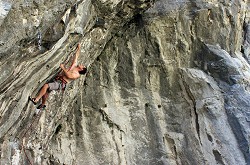

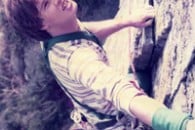

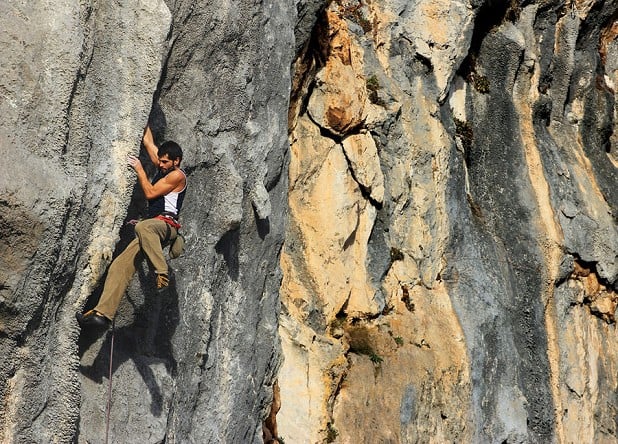
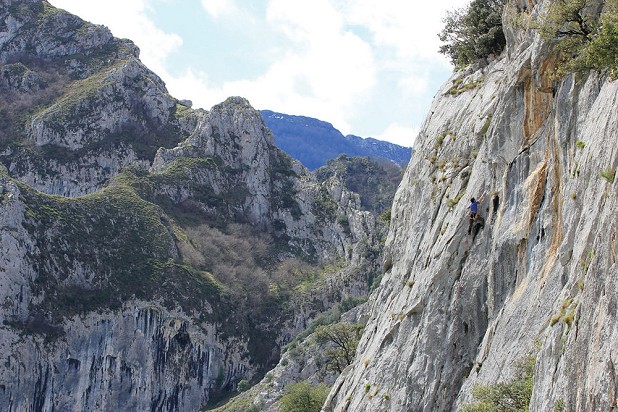
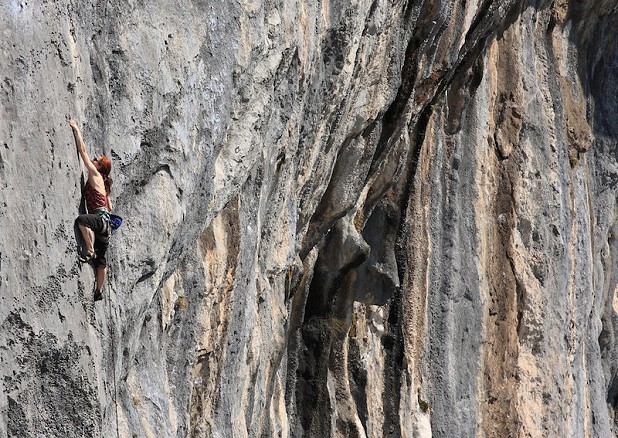
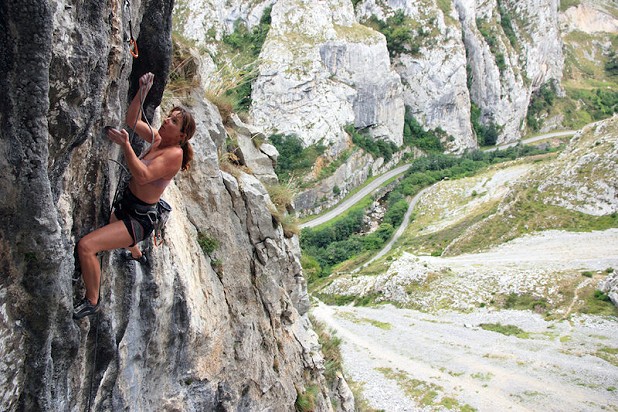
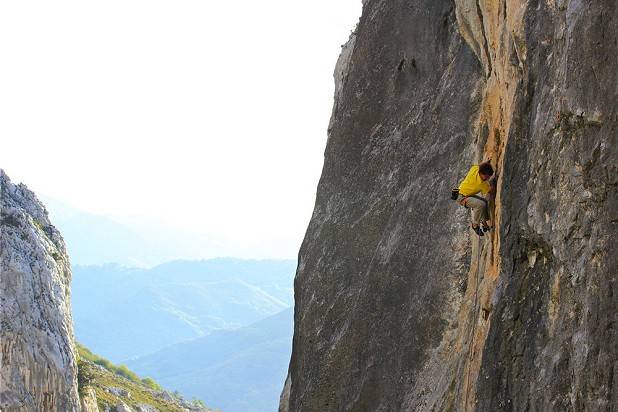
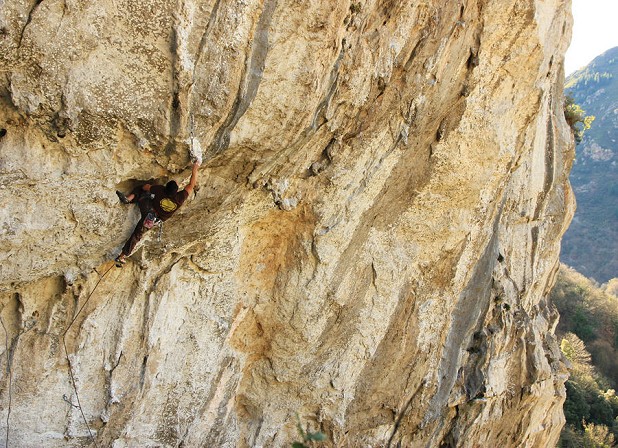
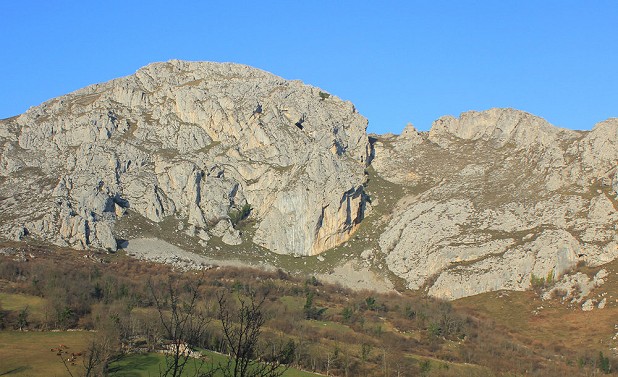
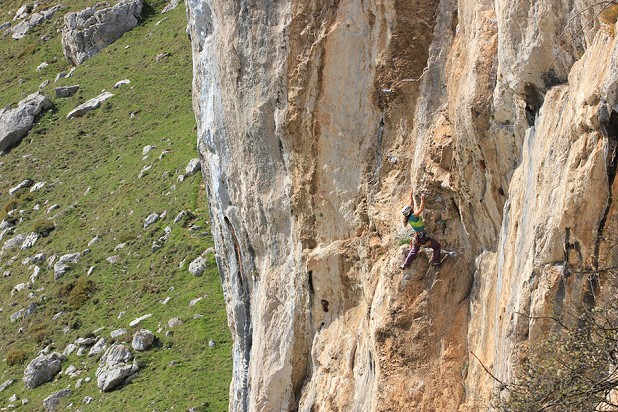
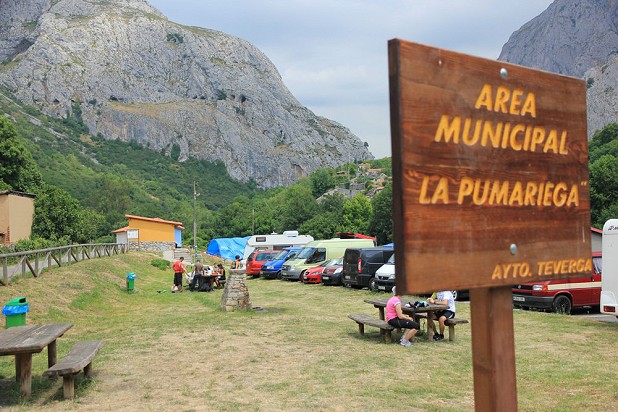
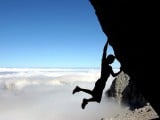


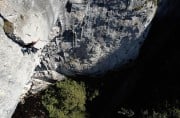

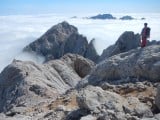
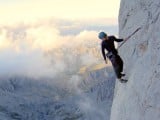

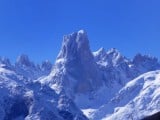
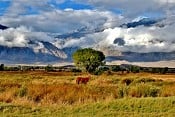
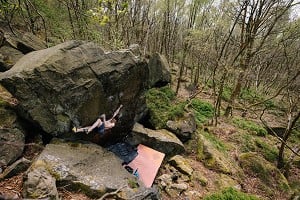
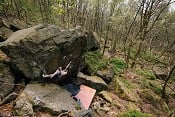
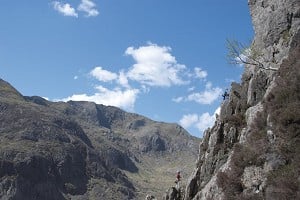
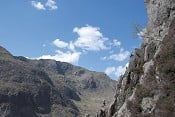



Comments